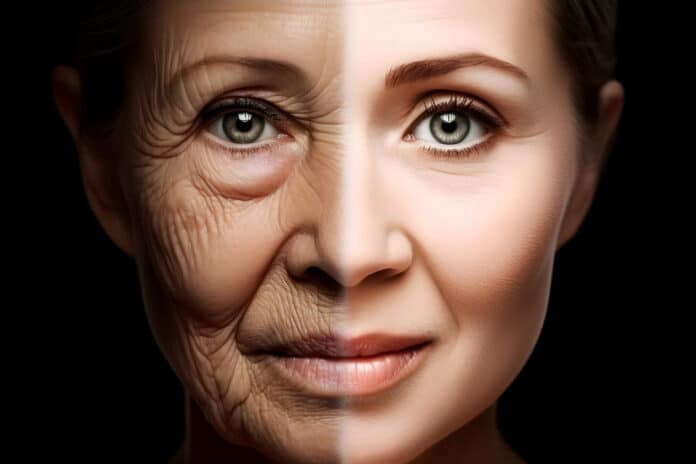A hallmark of eukaryotic aging is a loss of epigenetic information, a process that can be reversed. Previously, it was shown that the ectopic induction of the Yamanaka factors OCT4, SOX2, and KLF4 (OSK) in mammals can restore youthful DNA methylation patterns, transcript profiles, and tissue function without erasing cellular identity. This process requires active DNA demethylation.
In a groundbreaking study, a team of scientists at Harvard Medical School has unlocked a new frontier in the fight against aging and age-related diseases. The research team’s findings add to the knowledge that adult cells can become induced pluripotent stem cells (iPSCs) by expressing particular genes known as Yamanaka factors. This Nobel Prize-winning discovery raised whether it could slow biological aging without making cells excessively young and susceptible to cancer.
This new study aimed to identify chemicals that, when combined, could regenerate human cells and reverse cellular aging. They created real-time nucleocytoplasmic protein compartmentalization (NCC) assays and transcription-based aging clocks as high-throughput cell-based assays to distinguish between young and senescent cells. The team has identified six pharmacological cocktails that reverse transcriptome age and return NCC and genome-wide transcript profiles to youthful states in less than a week.
Harvard researchers previously showed that it is possible to reverse cellular aging without unchecked cell proliferation by virally delivering particular Yamanaka genes into cells. Promising findings have been found in the optic nerve, brain tissue, kidney, and muscle research. Enhanced vision and an extended lifespan have been seen in mice, and more recently, enhanced vision in monkeys has been reported.
David A. Sinclair, A.O., Ph.D., Professor in the Department of Genetics and co-Director of the Paul F. Glenn Center for Biology of Aging Research at Harvard Medical School and lead scientist on the project, said, “Until recently, the best we could do was slow aging. New discoveries suggest we can now reverse it. This process has previously required gene therapy, limiting its widespread use.”
“This discovery offers the potential to reverse aging with a single pill, with applications ranging from improving eyesight to effectively treating numerous age-related diseases.”
Journal Reference:
- Jae-Hyun Yang, Christopher A. Petty, Thomas Dixon-McDougall, et al. Chemically induced reprogramming to reverse cellular aging. Aging. DOI: 10.18632/aging.204896
